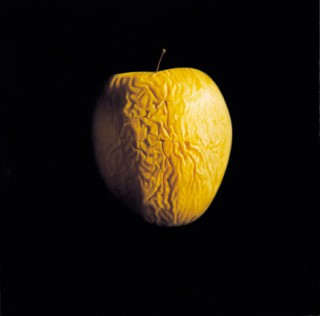Hydration in Sport – Part 1

Hydration in Sport – Part 1
1. The Ageing Apple
If you are as bad as this writer, you know too well what happens to the apple that you leave in the kitchen for too long; you bought it with a smooth, slick skin and now it’s all wrinkly.

That’s exactly what happens to all of us when our most vital element is denied. We age quickly.
Welcome to Water World.
2. Transport, Lubrication and Temperature
We need water for all the processes in our body to function.
Very simple.
We all know we are made of water (75%) and we grew up with our parents (and hopefully the trainers as well) bothering us about it.
On the internet you can find a billion articles on the positive effects of the right intake, but here is a short summary of the most salient points in sport:
Water is vital to carry all the elements you need to get to the muscles.
No water, no transport, no performance.
Water lubricates your joints (obviously mixed with other substances).
No water, no lubrication, locked joints, no performance.
Water regulates your body temperature. You’re always cold despite living and working on the mountain for years. How much water did you drink before leaving the house? Sweating is a result of body temperature regulation, how much do you suffer while training in the heat?
No water, messed up temperature regulating system, no joy, no performance.
3. Alright, how much then?
Now, if we are made out of water, it’s clear that we have a lot of it in our body. What we don’t know just yet is how much of it we lose in a day.
The average loss is commonly quantified as follows:
Urine 1000 -1500ml
Faeces 150-200ml
Lungs 350 – 600ml
Skin 450 – 900ml
Total Loss per Day: 2.5 litres
You can take this as an average standard. If you are an endurance athlete or you work out in high altitude conditions, you will naturally lose more water in your breathing and the amount you sweat.
That amount clearly need to be replaced daily just in order for your body to function.
4. Hypothalamus Regulation
What about the fact that even if you only drink a quarter of the required daily amount, you still don’t feel thirsty? That’s where the Hypothalamus regulation kicks in:
in order to survive difficult conditions and preserve your mind health in time of scarcity of fluid intake, your brain works for you and suspends the “I must drink” order. This way you can still function and think relatively clearly even when your body is starting to lack in fluids.
Something similar occurs when you get older, the Hypothalamus once again loses the sight of what’s enough and you slowly start drinking less and less.
The other issue that could be confusing, is that if you drink a little more than usual – and in some cases we are talking about just one extra glass, you feel the need to pee relatively quickly;
– “That’s because I’m hydrated”.
– Nope.
Actually, it’s because once your body has been dehydrated for a while, it loses the ability to keep the fluids internally, which is quite different.
Other factors influence the retention of water but generally speaking, those who drink a quantifiable amount of water (200 – 300 ml) and then feel the need to go to the bathroom just few minutes later are the ones who are dehydrated.
5. Now.
Ok, I really need to know NOW if I’m reasonably hydrated.
The easiest method is looking at the colour of your pee.
Below is an image from “Urine – Abnormal Color” by the MedlinePlus Medical Encyclopaedia.
Are you always below the first three?
The times you were drunk don’t count, seriously. At that point you might as well say purple.
Then you need to sort it out sooner rather than later.
Drinking water when you can, is the best and most immediate action you can take.
In the next article we’ll discuss strategies to keep your intake up, when is best to do so and how to maximize it.
The Subzero Coaching Team
Note to the reader.
None of the above is intended to substitute the opinion of your doctor.
The information provided on this site should not be used for diagnosing or treating a health problem or disease. It is not a substitute for professional care.
Seminars on this and many more topics are delivered in all our ski instructor courses.
Check out our Autumn and Winter Gap Courses, ISIA Level 3 Course, Level 4 Course, Race Training as well as the Full Focus, our one to one coaching course.
Looking for summer training? Check out our Summer Ski Instructor Training schedule!

